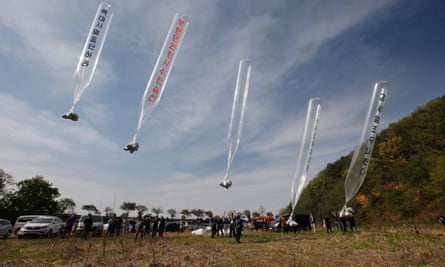North Korea says it will sever hotlines with South Korea as the first step toward shutting down all means of contact with Seoul, state news agency KCNA has reported.
For several days, North Korea has lashed out at South Korea, threatening to close an inter-Korean liaison office and other projects if the South does not stop activists and defectors from sending leaflets and other anti-Pyongyang material into the North.
The North has said it would make Seoul “suffer”.
Top government officials in North Korea, including leader Kim Jong-un’s sister, Kim Yo-jong, and Kim Yong-chol, vice-chairman of the Central Committee of the ruling Workers’ party of Korea, determined “that the work towards the South should thoroughly turn into the one against an enemy’, KCNA said.
As a first step, at noon on Tuesday, North Korea will “will completely cut off and shut down the liaison line between the authorities of the North and the South, which has been maintained through the North-South joint liaison office,” as well as other communication links.
Those links include “the East and West Seas communication lines” between the two countries’ militaries, an inter-Korean “trial communication line”, and a hotline between the central committee of the Workers’ party of Korea and South Korea’s presidential Blue House, KCNA said.

The official pronouncements appear to be a significant setback for a thaw in tensions over the past two years.
The North’s supreme leader, Kim Jong-un and the South’s president, Moon Jae-in, held three summits in 2018, seen globally as a sign of improving relations.
But Pyongyang largely cut off contact with Seoul following the collapse of a summit between Kim and US president Donald Trump in Hanoi last year that left nuclear talks at a standstill.
The two Koreas remain technically at war because the 1950-1953 Korean war ended with an armistice rather than a peace treaty.
The people of North Korea have “been angered by the treacherous and cunning behaviour of the South Korean authorities with whom we still have lots of accounts to settle,” KCNA said.
The report accused South Korean authorities of irresponsibly allowing defectors to hurt the dignity of North Korea’s supreme leadership.
“This was a sign of hostility to all our people,” KCNA said. “We have reached a conclusion that there is no need to sit face to face with the South Korean authorities and there is no issue to discuss with them, as they have only aroused our dismay.”
with AFP and Reuters
